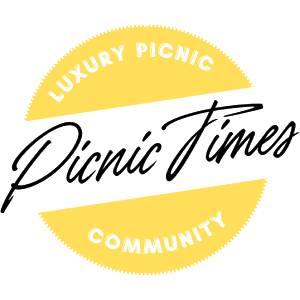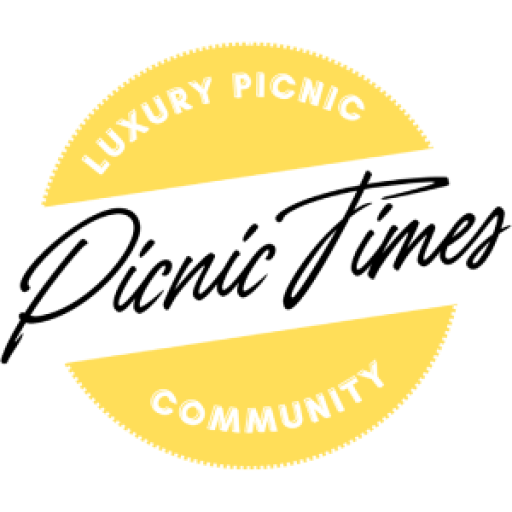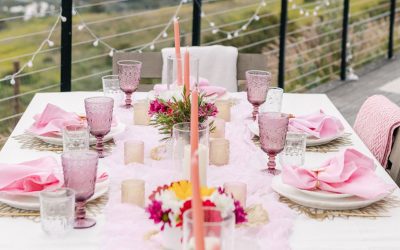Every beautiful celebration begins with good planning. And when we say celebration, this can mean a beach proposal, a backyard birthday, or a small wedding. As planning takes preparation, the right event management tools help you stay organized.
There are so many tools experts use to keep track of guests, budgets, and ideas so they can focus on creating moments people will remember. Of course, these tools do not replace your creativity. Instead, they support it and make your work easier, letting you plan with more confidence.
Why Event Management Tools Matter
Planning a celebration is exciting, but it can also be stressful because of so many details to manage, like the guests, timelines, vendors, decorations, and photos. But if you use the right event management tools, you stay on top of everything without feeling overwhelmed.
For example, a shared calendar keeps your team and clients on the same page, much like how we stay organized for the best luxury picnic business and make sure every detail aligns with your event vision.
A design app helps you show a couple what their beach proposal will look like before the day arrives. A checklist app reminds you to pack candles, napkins, and tableware so nothing is forgotten.
These tools for event planners save time and prevent mistakes. With the help of simple event organization tools, you can deliver a smooth event and create memories that truly last.
Best Event Management Tools for Modern Event Planners
These event planning tools help you stay organized from your first idea to the final setup. They are useful for wedding planners, proposal stylists, and anyone who manages more than one event at a time.
1. Aisle Planner
Best for: Weddings and styled events

Aisle Planner keeps everything in one place. You can manage your budget, vendor list, checklists, and timelines all in one place, without switching between apps. The design section enables you to share ideas and obtain client approvals quickly.
Tip: Use the design studio to make simple mood boards. This helps your clients see the look and feel of their event before you start setting it up.
2. Asana
Best for: Task and team organization

Asana is a simple event management software that helps teams stay on schedule. You can create checklists, assign tasks, and track deadlines in one dashboard. It is helpful for small event teams who need to stay connected.
Tip: Build one event template that includes all your usual tasks, such as setup, florals, catering, and cleanup. Use it for every new project to save time.
3. Trello
Best for: Visual planners and solo creators
Trello is an easy event management platform that uses boards and cards. You can make a board for each event and move tasks from “to do” to “done.” It helps you see progress at a glance.
Tip: Add photos to your cards for each event. For example, upload pictures of décor, linens, or food displays. This keeps your creative ideas in one place and helps assistants know what to prepare.
These tools make it easier to stay organized, save time, and bring your ideas to life. They help turn your creative vision into real celebrations that flow smoothly from start to finish.
4. Canva Pro
Best for: Creating mood boards and visual proposals

Canva Pro lets you design quick, beautiful layouts to show your clients. You can upload photos, choose color palettes, and create inspiration boards for weddings, birthdays, and proposals.
Tip: Save your brand colors and fonts in Canva. This keeps your visual style consistent across all projects.
5. Social Tables
Best for: Floor plans and seating maps
Social Tables helps you plan the layout of tables, décor, and guest seating. It is especially useful when working with venues or outdoor spaces where every inch matters.
Tip: Use the 3D layout view to walk clients through their setup during meetings. It helps them feel confident about your design before event day.
6. Pinterest Boards
Best for: Collecting and sharing inspiration

Pinterest is one of the simplest event organization tools for showing style ideas. You can create shared boards for each client and save décor, color, and setup inspiration.
Tip: Create a secret board for each client. It keeps your ideas private while making collaboration easy and fun.
7. HoneyBook
Best for: Contracts, invoices, and client communication
HoneyBook is an all-in-one platform for managing clients. You can send contracts, receive payments, and keep all conversations in one place.
Tip: Use automated reminders for payments or signatures. It saves time and avoids awkward follow-ups.
8. Google Forms or RSVPify
Best for: Tracking RSVPs and guest details

Google Forms is free and simple, while RSVPify offers more advanced options like meal choices and guest lists. Both tools make it easy to know who is coming and what they need.
Tip: Collect guest preferences early, such as allergies or seating requests. It helps avoid last-minute surprises.
9. WhatsApp Business or Slack
Best for: Quick updates and vendor communication
WhatsApp Business and Slack let you message your team and vendors instantly. You can share photos, timing updates, and checklists from your phone.
Tip: Create a separate group for each event. It keeps messages organized and prevents confusion between projects.
10. QuickBooks
Best for: Invoicing and expense tracking

QuickBooks helps you send invoices, track payments, and record expenses in one place. It is simple to use and keeps your business organized.
Tip: Review your reports each month to understand which services bring the most profit.
11. Stripe, Zelle, or HoneyBook Payments
Best for: Fast and secure payments
These tools make it easy for clients to pay online. Stripe works for credit cards, Zelle for direct transfers, and HoneyBook integrates payments with contracts.
Tip: Offer at least two payment options so clients can choose what works best for them.
12. Google Sheets Budget Templates
Best for: Simple, customizable budgets

Google Sheets helps you track expenses, deposits, and profits without extra software. It is flexible and easy to share with your team.
Tip: Save your budget sheet as a reusable template to speed up new projects.
13. Later or Planoly
Best for: Planning social media content
Later and Planoly help you schedule posts, preview your grid, and plan your captions. They save time and keep your Instagram feed consistent with your brand style.
Tip: Schedule posts right after each event. Behind-the-scenes photos often bring the most engagement.
How to Choose the Right Event Management Tool for Your Style
Every planner works differently, and there is no single perfect system. The best event management tools depend on the type of events you create and your preferred workflow. The key is to find tools that fit your creative flow.
Below are examples of how to match tools with your event style and business needs.
For Proposal and Wedding Planners
Are you a proposal planner or even aim for bigger events like weddings? Tools like Aisle Planner, HoneyBook, and Social Tables help you manage everything from vendors to guest lists in one place. They make it easy to share visuals and timelines with couples who want to see every detail before the big day.

Tip: Choose software that lets clients review layouts and budgets easily. It builds trust and reduces last-minute stress.
For Birthdays and Picnics
For smaller celebrations, simplicity is key. Planners organizing birthdays or luxury picnics often require fast, visual tools to save time. Trello, Canva, and Google Sheets are great for keeping track of décor ideas, checklists, and costs without overcomplicating the process.
Tip: Use one shared folder for each event. It keeps everything—photos, notes, and budgets—in one easy place.
For Luxury and Corporate Clients
Luxury or corporate events often involve bigger teams and more structure. These clients expect detailed reports, branding consistency, and smooth communication. Asana, QuickBooks, and Mailchimp work well for this type of planner. They help track progress, manage teams, and show a professional brand image.
Tip: Choose tools that let you create custom templates for reports and emails. Consistency builds confidence and strengthens your reputation.
Building Emotion Through Smart Planning
Event planning is about crafting experiences that evoke emotions in people. The right event management tools help you spend less time managing details and more time focusing on your craft.
These event planning tools keep your work organized so you can stay creative and calm. They give structure to your ideas and help you build experiences that flow naturally from start to finish.
Technology should never replace emotion. It should give you the freedom to plan with heart, listen to your clients, and bring their vision to life with care and confidence. When you find tools that fit your style, every celebration becomes easier and more meaningful.
At Picnic Times, we believe that planning should feel as beautiful as the moments you create. If you are ready to elevate your events with thoughtful design and seamless coordination, explore our luxury picnic and event styling services today.






